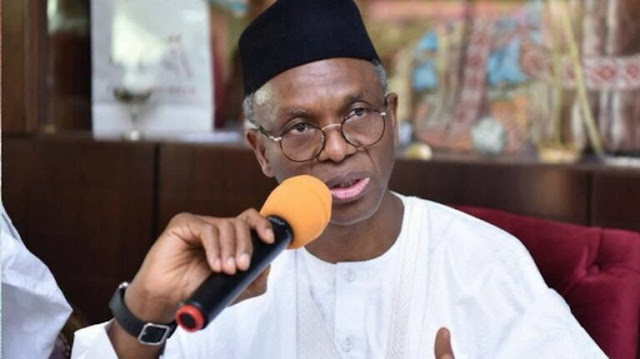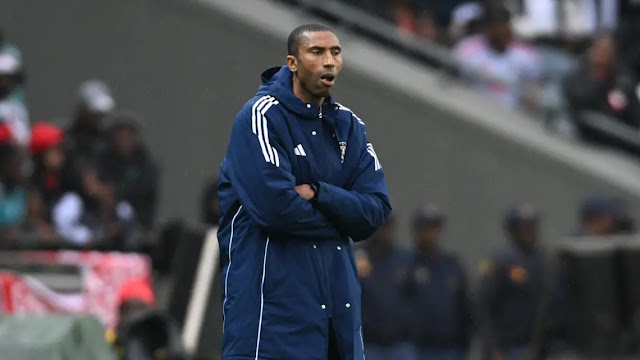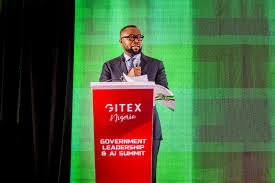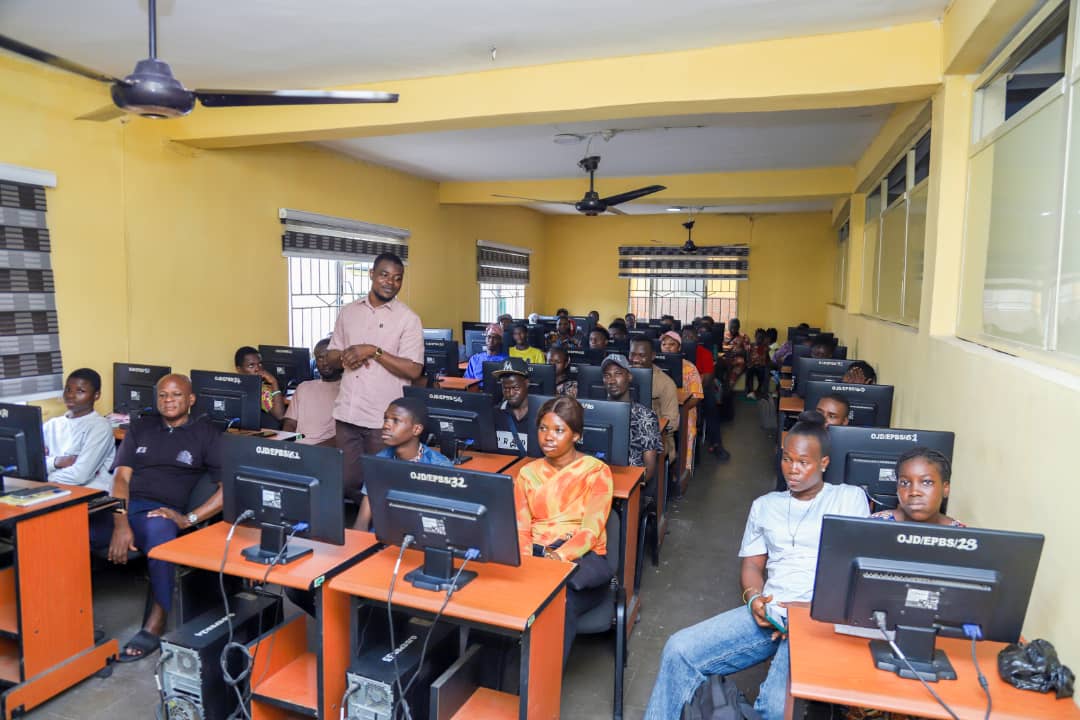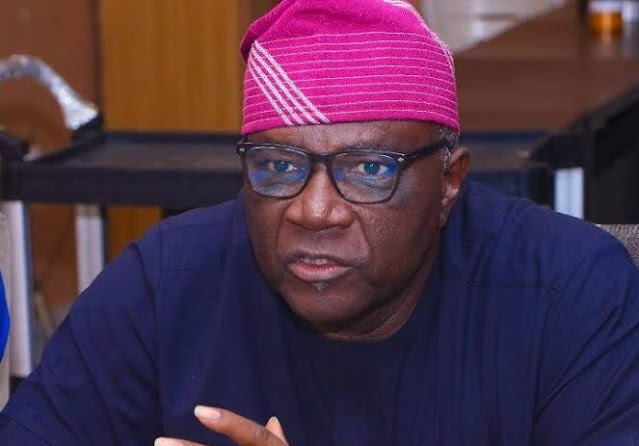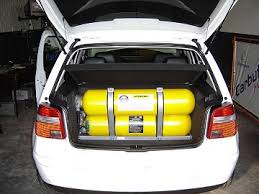In a strongly worded statement, the Kaduna State Government has accused former Governor Nasir El-Rufai of orchestrating a deliberate campaign to undermine the peace, unity, and development achieved under the administration of Governor Uba Sani. Signed by the Commissioner for Internal Security and Home Affairs, Dr. Suleiman Shuiabu, the statement, released on September 1, 2025, alleges that El-Rufai’s recent actions and public remarks pose a direct threat to the state’s stability. The accusations come at a time when Kaduna is striving to consolidate gains in security, infrastructure, and inclusive governance, raising questions about the motivations behind El-Rufai’s alleged actions and their implications for the state’s political and social fabric.
This article delves into the details of the government’s accusations, examines the historical and political context of Kaduna’s governance, analyzes the broader implications for Nigeria’s volatile northern region, and explores the challenges and opportunities for sustaining peace and development in the state. It also offers policy recommendations to address the tensions and ensure Kaduna’s continued progress.
The Accusations: A Threat to Kaduna’s Stability
The Kaduna State Government’s statement paints a damning picture of former Governor El-Rufai, accusing him of attempting to plunge the state back into an era of ethno-religious tension, insecurity, and economic decline. According to Dr. Shuiabu, El-Rufai’s actions intensified following the defeat of his political allies in the August 16, 2025, bye-elections, which the government claims were transparent and reflective of public support for the All Progressives Congress (APC)-led administration under Governor Uba Sani.
The commissioner alleges that El-Rufai sponsored a political meeting on August 30, 2025, which descended into violence and gunfire. Rather than accepting the electoral loss with dignity, El-Rufai is accused of resorting to sabotage and spreading misinformation, including falsely claiming that the state government disrupted the gathering. “Such claims are not only insulting but expose his desperation to return Kaduna to the violence that defined his tenure,” Shuiabu stated, emphasizing that these actions threaten the state’s hard-won peace.
The statement also takes aim at El-Rufai’s recent comments on national television, where he alleged that both federal and state governments had bribed bandits to curb insecurity. The Kaduna State Government describes these claims as malicious and calculated to incite public anger while undermining ongoing security efforts. Dr. Shuiabu noted that the Office of the National Security Adviser (ONSA) had already debunked these allegations, confirming that no payments were made to criminal groups. Instead, he highlighted the success of sustained military operations and grassroots peace initiatives in restoring calm to previously volatile areas such as Birnin Gwari, Giwa, Kajuru, and Kauru.
“For a former governor to deny these verifiable achievements and insult the sacrifice of security personnel who died in service is beyond shameful. It is a calculated act of sabotage,” Shuiabu asserted. The statement contrasts El-Rufai’s eight-year tenure (2015–2023), which it describes as marked by division, fear, and marginalization, with Governor Sani’s inclusive and people-focused administration. It points to improvements in education, healthcare, infrastructure, and financial inclusion as evidence of Kaduna’s recovery under the current leadership.
The Kaduna State Government concludes by reaffirming its commitment to peace and good governance, warning that security agencies are prepared to respond firmly to any destabilizing acts. “The peace of Kaduna is non-negotiable. Anyone who attempts to undermine it, whether El-Rufai or his associates, will be held to account,” Shuiabu declared.
Historical Context: El-Rufai’s Tenure and Kaduna’s Challenges
To understand the gravity of the accusations, it is essential to examine Nasir El-Rufai’s tenure as governor of Kaduna State from 2015 to 2023. El-Rufai, a prominent figure in the APC, came to power with a reputation as a technocrat and reformer, having served as Director-General of the Bureau of Public Enterprises and Minister of the Federal Capital Territory under President Olusegun Obasanjo. His governorship was marked by ambitious policies aimed at modernizing Kaduna, including urban renewal projects, civil service reforms, and investments in education and infrastructure.
However, El-Rufai’s tenure was also highly controversial. Critics accused him of pursuing policies that deepened ethno-religious divisions, particularly in a state with a history of communal violence. Kaduna, located in Nigeria’s northwest, is a microcosm of the country’s diversity, with a near-equal split between Christians and Muslims and a complex mix of ethnic groups. The state has been a flashpoint for ethno-religious conflicts, notably the 2000–2002 riots over Sharia law implementation and subsequent clashes in Zaria and southern Kaduna. El-Rufai’s policies, such as the demolition of informal settlements and the retrenchment of civil servants, were criticized for disproportionately affecting certain communities, fueling perceptions of marginalization.
Security was a persistent challenge during El-Rufai’s administration. Kaduna became a hotspot for banditry, kidnapping, and communal violence, particularly in areas like Birnin Gwari, Giwa, and Kajuru. The former governor’s approach to security, which combined military operations with controversial negotiations with armed groups, drew mixed reactions. While some praised his efforts to restore order, others argued that his policies failed to address the root causes of insecurity, such as poverty, unemployment, and land disputes.
El-Rufai’s governance style was also characterized by a centralized approach, with critics accusing him of sidelining traditional and religious leaders, who play a significant role in Kaduna’s social fabric. His decision to replace elected local government officials with appointed administrators sparked legal and political controversies, further straining relations with communities. These dynamics set the stage for the current tensions, as the Kaduna State Government accuses El-Rufai of attempting to exploit these fault lines to destabilize the state.
The Political Landscape: Sani vs. El-Rufai
The accusations against El-Rufai must also be viewed through the lens of Kaduna’s evolving political landscape. Governor Uba Sani, who succeeded El-Rufai in 2023, was initially seen as a protégé of the former governor, having served as a senator under the APC banner. However, the relationship between the two has deteriorated, with Sani distancing himself from El-Rufai’s legacy and pursuing a more inclusive governance model.
Sani’s administration has prioritized reconciliation and grassroots engagement, seeking to heal the divisions of the past. His policies emphasize financial inclusion, education reform, and infrastructure development, with notable projects like the rehabilitation of rural roads and the expansion of healthcare facilities. The government’s statement highlights these achievements as evidence of Kaduna’s recovery, contrasting them with the “division, fear, and marginalization” of El-Rufai’s era.
The August 16, 2025, bye-elections, which saw victories for the APC, have become a flashpoint in this rivalry. The Kaduna State Government claims that the transparent conduct of the polls reflects public support for Sani’s leadership, while El-Rufai’s allies, who suffered defeats, have allegedly resorted to destabilizing tactics. The August 30 meeting, which reportedly turned violent, is cited as evidence of El-Rufai’s desperation to undermine Sani’s administration.
This political feud reflects broader tensions within the APC in Kaduna and Nigeria at large. El-Rufai, a former presidential aspirant, remains a polarizing figure within the party, with significant influence among certain factions. His criticisms of the federal and state governments, including allegations of bribing bandits, align with his reputation for outspokenness but have drawn sharp rebukes from both the ONSA and the Kaduna State Government. These dynamics underscore the high stakes of political competition in Kaduna, where control over the state’s resources and influence shapes the national political landscape.
Economic and Social Implications
The accusations against El-Rufai have significant implications for Kaduna’s economic and social stability. The state is a critical economic hub in northern Nigeria, with a diverse economy encompassing agriculture, manufacturing, and services. Kaduna’s strategic location, hosting military bases and industrial estates, makes it a focal point for investment and development. However, persistent insecurity and political instability have deterred investors, constrained economic growth, and exacerbated poverty.
Governor Sani’s administration has made strides in addressing these challenges. The government’s statement highlights improvements in education, with over 100 schools renovated in 2024, and healthcare, with new primary health centers established in rural areas. Financial inclusion initiatives, such as partnerships with microfinance banks, have expanded access to credit for SMEs, while infrastructure projects, including the Kaduna-Zaria road rehabilitation, have improved connectivity. These efforts have contributed to a relative decline in violent incidents, with areas like Birnin Gwari and Kajuru experiencing fewer attacks due to sustained military operations and community-driven peace initiatives.
El-Rufai’s alleged actions threaten to reverse these gains. By accusing the government of bribing bandits, he risks undermining public confidence in security efforts, potentially emboldening criminal groups. The alleged violence at the August 30 meeting further raises concerns about a return to ethno-religious tensions, which could destabilize communities and disrupt economic activity. For a state recovering from years of insecurity, such actions could have far-reaching consequences, deterring investment and stalling development projects.
Security Context: Progress and Challenges
Kaduna’s security landscape is central to the government’s accusations against El-Rufai. The state has been a hotspot for banditry, kidnapping, and communal violence, driven by factors such as poverty, land disputes, and weak governance. During El-Rufai’s tenure, the state recorded significant security challenges, with over 1,000 kidnappings reported in 2021 alone, according to security analysts. His administration’s approach, which included military operations and negotiations with armed groups, achieved mixed results, with critics arguing that it failed to address underlying socio-economic issues.
Under Governor Sani, the state has adopted a multi-pronged strategy, combining military operations with grassroots peace initiatives. The government’s statement cites the restoration of calm in areas like Birnin Gwari, Giwa, Kajuru, and Kauru as evidence of progress. For instance, the establishment of peace committees involving traditional and religious leaders has helped mediate conflicts and reduce communal violence. The Nigerian military’s sustained operations, supported by federal initiatives like Operation Forest Sanity, have also disrupted bandit networks, leading to a decline in attacks.
The ONSA’s rebuttal of El-Rufai’s bribery allegations underscores the federal government’s commitment to a hardline stance against criminal groups. The agency’s statement, issued in August 2025, confirmed that no payments were made to bandits, emphasizing instead the role of intelligence-driven operations and community engagement. By accusing the government of bribery, El-Rufai risks undermining these efforts, potentially eroding public trust and emboldening criminals.
Challenges to Sustaining Peace and Stability
The Kaduna State Government faces several challenges in sustaining the peace and stability it claims to have achieved:
Political Polarization: The feud between Sani and El-Rufai reflects deeper divisions within the APC and Kaduna’s political elite. Managing these tensions requires careful diplomacy to prevent further escalation.
Security Threats: Despite progress, banditry and kidnapping remain persistent threats. Sustaining military operations and peace initiatives requires significant resources and coordination with federal authorities.
Economic Pressures: High inflation (over 30% in 2024) and unemployment continue to fuel discontent, creating fertile ground for destabilizing narratives. The government must scale up economic interventions to address these root causes.
Public Perception: El-Rufai’s influence as a former governor and national figure means his allegations could sway public opinion, particularly among his supporters. The government must counter misinformation with transparent communication.
Ethno-Religious Sensitivities: Kaduna’s diverse population makes it vulnerable to ethno-religious manipulation. The government must prioritize inclusive policies to prevent communal tensions.
Policy Recommendations
To address the accusations against El-Rufai and sustain Kaduna’s progress, the state government and relevant stakeholders should consider the following:
Strengthen Security Coordination: The government should deepen collaboration with federal security agencies and local communities to sustain gains in volatile areas. Expanding peace committees and investing in early warning systems can prevent outbreaks of violence.
Enhance Transparency and Communication: To counter misinformation, the government should launch a robust communication campaign highlighting its achievements in security, education, and infrastructure. Regular updates from the ONSA and state security agencies can rebuild public trust.
Promote Inclusive Governance: Governor Sani should continue engaging traditional and religious leaders to foster unity and address perceptions of marginalization. Expanding financial inclusion programs can also empower underserved communities.
Address Economic Challenges: Investments in job creation, agricultural productivity, and SME financing can reduce poverty and unemployment, mitigating the conditions that fuel instability.
Strengthen Electoral Integrity: To prevent future electoral disputes, the government should work with the Independent National Electoral Commission (INEC) to ensure transparent and credible polls, reducing the risk of post-election violence.
Engage Civil Society: Partnering with civil society organizations can enhance grassroots peacebuilding efforts and counter destabilizing narratives. Initiatives like community dialogues and youth engagement programs can foster social cohesion.
Broader Implications for Nigeria
The tensions in Kaduna have implications beyond the state, given its strategic importance in northern Nigeria. As a political and economic hub, Kaduna’s stability influences the broader region, where insecurity and poverty have fueled unrest. The accusations against El-Rufai highlight the challenges of managing political transitions in Nigeria, where former leaders often retain significant influence and can shape public discourse.
The controversy also underscores the fragility of Nigeria’s security landscape. The northwest, including states like Zamfara, Katsina, and Sokoto, has faced a surge in banditry and kidnapping, with over 7,000 abductions reported in 2024, according to security reports. Kaduna’s relative progress offers a model for other states, but sustaining it requires addressing the root causes of insecurity, such as poverty and governance deficits.
Politically, the feud reflects broader tensions within the APC as Nigeria approaches the 2027 general elections. El-Rufai’s national profile and his criticisms of the federal government could influence the party’s internal dynamics, potentially shaping the national political landscape. The Kaduna State Government’s firm stance against him signals a broader effort to consolidate power and assert control over the state’s political narrative.
Looking Ahead: Safeguarding Kaduna’s Progress
The Kaduna State Government’s accusations against Nasir El-Rufai highlight the delicate balance between sustaining peace and navigating political rivalries in a state with a complex history. Governor Uba Sani’s administration has made notable strides in restoring stability, improving infrastructure, and fostering inclusion, but these gains remain fragile. El-Rufai’s alleged actions, if substantiated, pose a significant threat to this progress, risking a return to the ethno-religious tensions and insecurity that have plagued Kaduna in the past.
To safeguard its achievements, the government must prioritize transparent governance, robust security measures, and inclusive policies that address the needs of all communities. Engaging civil society, traditional leaders, and youth can counter destabilizing narratives and foster social cohesion. At the same time, addressing economic challenges through job creation and financial inclusion is critical to reducing the conditions that fuel unrest.
The accusations against El-Rufai also underscore the need for accountability in Nigeria’s political system. Former leaders must be held to account for actions that undermine public safety and stability, while current leaders must demonstrate a commitment to good governance. As Kaduna navigates these challenges, its ability to maintain peace and drive development will serve as a litmus test for Nigeria’s broader aspirations for stability and prosperity.
In conclusion, the Kaduna State Government’s warning to Nasir El-Rufai reflects the high stakes of political competition and the fragility of peace in a state with a turbulent history. By addressing the accusations head-on and building on its achievements, the government can chart a path toward a more stable and prosperous Kaduna. As Dr. Shuiabu declared, “The peace of Kaduna is non-negotiable.” With concerted efforts, Kaduna can continue its journey toward recovery, setting a model for other states in Nigeria’s volatile northwest.


